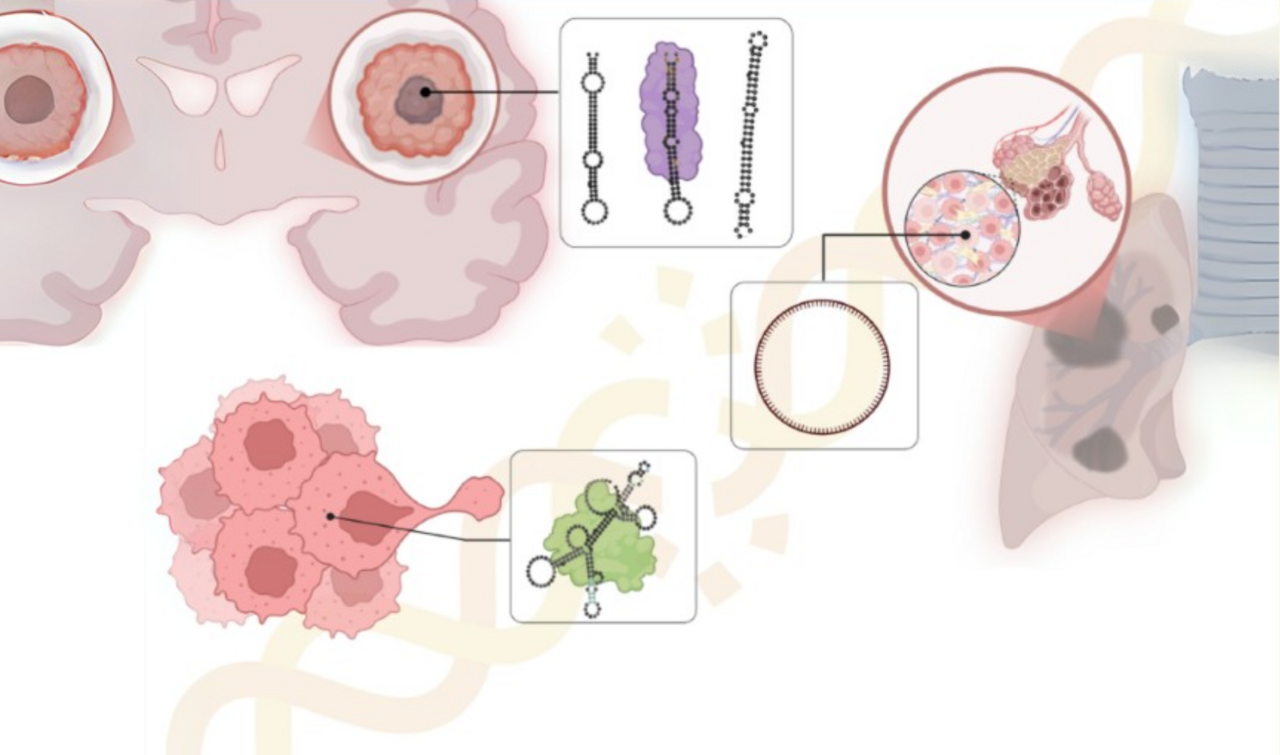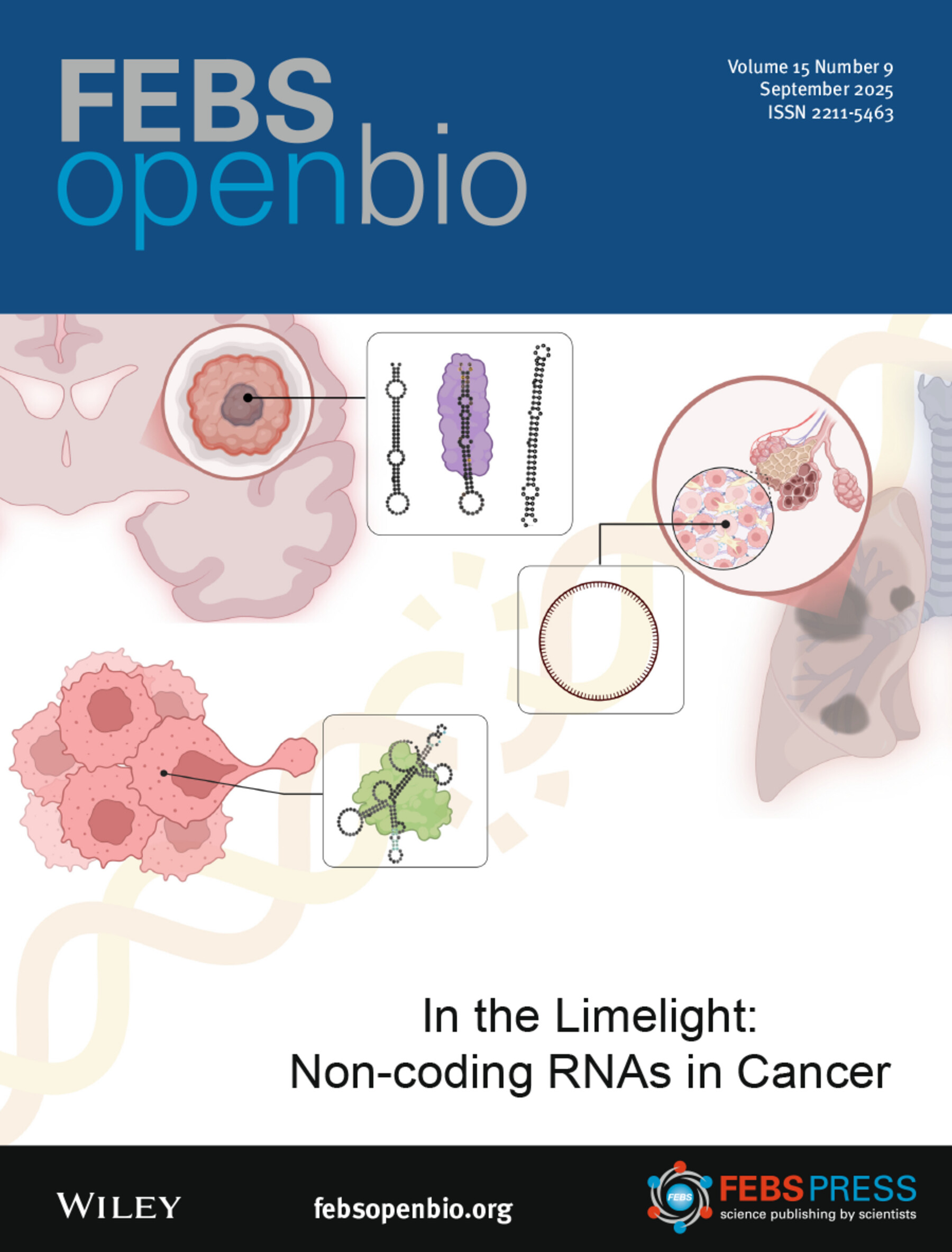In the Limelight: Non-coding RNAs in Cancer

Until recent years, the central dogma of molecular biology was presented as a clear and linear process by which “DNA makes RNA, and RNA makes protein”. Protein-coding genes were therefore considered biologically significant, while the remaining non-coding DNA was reduced to ‘junk’. However, advances in genomics have now revealed these non-coding regions produce a diverse set of non-coding RNAs, many of which play a critical role in key cellular processes. And more recently, their involvement in tumour progression and regulation has brought them to the forefront of cancer research.
Recognising their significance, FEBS Open Bio dedicates its September ‘In the Limelight’ issue to ‘Non-coding RNAs in Cancer’. Guest edited by Marcin Majka (Jagiellonian University, Kraków), the issue opens with an introductory editorial offering a brief overview of the featured research.
Following this are four thematic articles that each focus on the different ways by which non-coding RNAs shape cancer biology.
- Burenina et al. highlight liver-specific long non-coding RNAs and their dysregulation in primary liver cancers, discussing their role as tumour suppressors and potential biomarkers.
- Wojcik et al. focus on R-loops and how their uncontrolled formation leads to oncogene activation. They emphasise the role of human ribonuclease Dicer – a key player in miRNA production - in controlling R-loop accumulation.
- Tran and colleagues examine oncogenic long non-coding RNAs in head and neck squamous cell carcinoma, describing their potential as novel therapeutic targets in cancer treatment.
- Finally, Joshi et al. review the role of circRNAs in modulating cytokine signalling in the tumour microenvironment, discussing how their abnormal expression can drive cancer hallmarks such as EMT, proliferation, and immune evasion.
We invite you to read the full collection here.
For more valuable publications on cancer biology, be sure to visit our dedicated Cancer Section.

[1] https://doi.org/10.1002/2211-5463.70079
[2] https://doi.org/10.1002/2211-5463.70026





Join the FEBS Network today
Joining the FEBS Network’s molecular life sciences community enables you to access special content on the site, present your profile, 'follow' contributors, 'comment' on and 'like' content, post your own content, and set up a tailored email digest for updates.